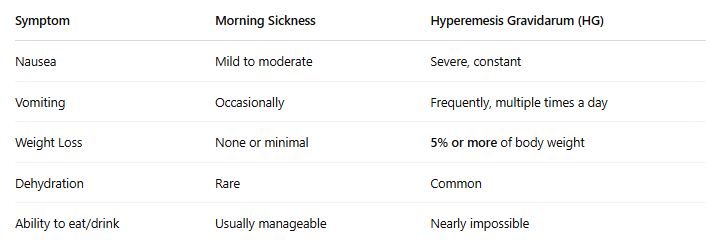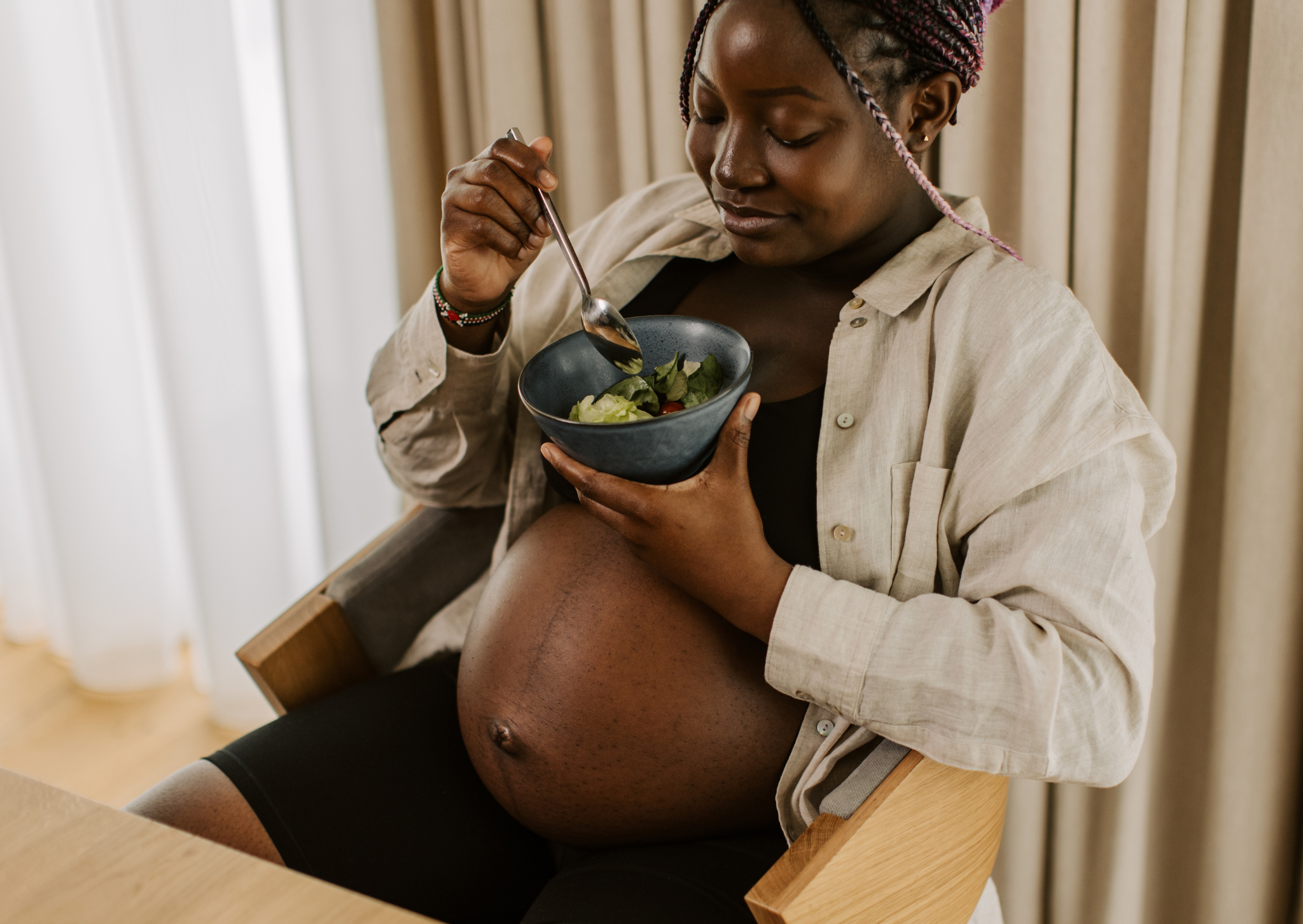“Is This Normal?”: A Deep Dive into Morning Sickness + What Actually Works
Helping you feel seen, supported, and prepared on your pregnancy journey
So... you just found out you're pregnant—yay! But suddenly, your favorite foods make you gag, and your mornings feel more like a battle than a blessing. Sound familiar?
If you’re wondering why your body feels like it’s betraying you and if this is really what pregnancy is supposed to feel like—you’re in the right place.
Let’s talk about what morning sickness really is, why it happens, and what you can actually do to feel better.
What Causes Morning Sickness?
Morning sickness affects around 70–80% of pregnant people. It’s most common in the first trimester, starting around week 6 and usually easing up by week 12 to 16—though it can last longer for some.
It’s believed to be caused by a few big shifts in your body:
✅ Hormones – A surge in hCG (human chorionic gonadotropin) and estrogen during early pregnancy.
✅ Sensitive stomach – Some people’s GI systems react more strongly to hormonal changes.
✅ Heightened sense of smell – Your brain becomes more sensitive to scents (even the nice ones).
✅ Blood sugar dips – Lower blood sugar can make nausea worse.
✅ Fatigue & stress – Being tired or emotionally overwhelmed can also trigger nausea.
Fun fact: Morning sickness may even be a sign of a healthy pregnancy—studies show people who experience it are slightly less likely to miscarry. (NIH)
Morning Sickness vs. Hyperemesis Gravidarum
Most people will have mild to moderate symptoms that can be managed at home. But for some, it becomes more serious.
Here’s how to tell the difference:
Figure 1: Morning Sickness vs. Hyperemesis Gravidarum
💡 HG requires medical care—possibly IV fluids, medications, and close monitoring. If you suspect you have it, talk to your provider right away.
Evidence-Based Tips to Manage Morning Sickness
Okay, let’s get to the good stuff: what can you actually do to feel better?
1. Eat Small, Frequent Meals
Don’t let your stomach go empty—it can make nausea worse.
Eat something every 2–3 hours.
Keep snacks by your bed and eat before getting up.
Try: dry toast, crackers, bananas, applesauce, rice, boiled potatoes.
Avoid: greasy, spicy, or super sweet foods.
2. Sip Smart
Hydration is key, but sipping is better than gulping.
Take tiny sips throughout the day.
Cold or carbonated drinks can be easier to tolerate.
Try electrolyte waters, ginger ale (with real ginger), or lemon water.
Popsicles and crushed ice count too!
3. Try Ginger + Vitamin B6
Ginger tea, chews, capsules, or lozenges can settle your stomach.
Vitamin B6 (10–25 mg, 2-3x a day) is shown to reduce nausea.
Talk to your provider before adding any supplements.
4. Use Acupressure Wristbands
Sea-Bands apply pressure to a spot on your wrist known to ease nausea (the P6 acupoint). Some people swear by them.
5. Prioritize Rest
Nausea often feels worse when you’re tired.
Go to bed early. Rest during the day if you can.
Try light walks or prenatal yoga to boost circulation and improve mood.
6. Try to Reduce Triggers
Smells, stress, and even scrolling your phone can worsen symptoms.
Identify smells that make you queasy and avoid them.
Keep your space cool and well-ventilated.
Use lemon or peppermint oil on a cotton ball to “reset” your senses.
When to Call Your Provider
Call your doctor or midwife if:
You can’t keep food or fluids down for more than 24 hours
You’ve lost more than 5 pounds
You feel dizzy, faint, or have dark urine
Vomiting blood or bile
💬 Don’t brush it off—you deserve to feel safe and supported.
Morning Sickness Isn’t “Just Part of It”
Too often, people are told to just “tough it out.” But you don’t have to suffer in silence.
Morning sickness can affect your mental health, nutrition, and connection to your pregnancy.
It’s OK to ask for help. It's OK to want to feel better.
From The Necessary Nurse: You’ve Got Options
We’ve supported hundreds of pregnant people through the ups and downs of morning sickness—and every journey is different. But one thing stays the same: you deserve care that meets you where you are.
If you’re navigating nausea (or just want a little more peace of mind), we offer:
Prenatal screenings
1:1 support and education
Safe, trusted wellness options
Referrals to OBs and midwives
Your body is doing something powerful. Let’s make sure you’re supported every step of the way.
Whether you're in your first trimester or feeling overwhelmed by symptoms, you're not alone. Let's talk through your concerns, explore your options, and make a plan that supports you and your pregnancy.





